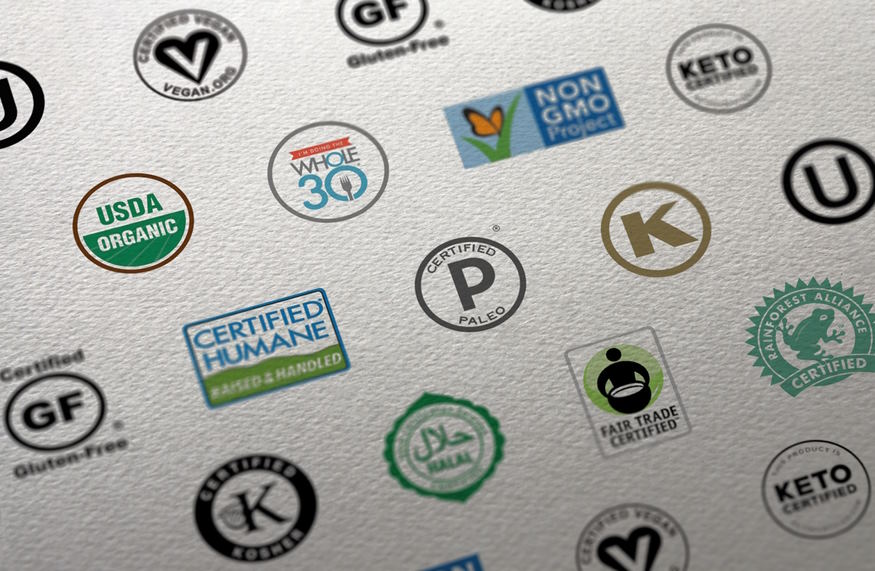International food trade plays a vital role in ensuring global food security and meeting the diverse dietary needs of populations worldwide. However, with the increasing complexity of the global food supply chain, ensuring the safety, quality, and integrity of food products has become a significant challenge. This is where certification and standards step in as essential tools for promoting trust, transparency, and accountability in food trade. By establishing clear guidelines and requirements, certification and standards contribute to the prevention of foodborne illnesses, fair trade practices, and the building of consumer confidence.
International Certification and Standardization Bodies
Role of international organizations (e.g., Codex Alimentarius):
International organizations play a crucial role in developing and harmonizing certification and standards in the realm of food trade. One prominent example is the Codex Alimentarius Commission, jointly established by the Food and Agriculture Organization (FAO) and the World Health Organization (WHO). Codex develops international food standards, guidelines, and codes of practice to ensure the safety and quality of food products traded across borders. Through its expert committees and consultations with member countries, Codex fosters collaboration and knowledge-sharing, facilitating the establishment of globally recognized benchmarks.
Regional bodies and their impact (e.g., European Union):
Regional bodies also make significant contributions to the standardization process, particularly at a regional level. The European Union (EU), for instance, has implemented an extensive framework of regulations and directives to govern food safety and quality within its member states. The EU’s harmonized standards not only ensure a high level of consumer protection but also simplify trade within the region. By adhering to these standards, producers gain access to a vast market while consumers benefit from consistent and reliable food products.
National certification programs and their significance:
National certification programs provide an essential foundation for food safety and quality assurance within individual countries. These programs establish specific requirements and procedures for certification, which often go beyond international standards to address local needs and regulations. National programs, such as the United States Department of Agriculture’s (USDA) organic certification or Australia’s National Association for Sustainable Agriculture, Australia (NASAA) certification, give consumers confidence in the authenticity of food claims and support domestic producers in meeting market demands. Moreover, national programs act as stepping stones for businesses to expand into international markets, as compliance with rigorous national standards enhances credibility and facilitates trade partnerships.

Types of Certification and Standards
Food safety certifications (e.g., HACCP, ISO 22000):
Food safety certifications are paramount in ensuring that food products are safe for consumption. Hazard Analysis Critical Control Points (HACCP) is a widely recognized system that identifies and controls potential hazards throughout the food production process. It focuses on critical control points to prevent, reduce, or eliminate risks. Another prominent certification is ISO 22000, an international standard that encompasses food safety management systems, addressing hazards, traceability, and the implementation of good manufacturing practices. These certifications provide assurance to consumers and stakeholders that food companies have robust systems in place to guarantee the safety of their products.
Quality certifications (e.g., ISO 9001):
Quality certifications emphasize the adherence to stringent quality management systems. ISO 9001 certification sets standards for quality management, encompassing processes such as customer satisfaction, continuous improvement, and risk management. By obtaining ISO 9001 certification, organizations demonstrate their commitment to consistently providing products and services that meet customer expectations. In the food industry, ISO 9001 certification ensures consistent quality control measures and enables businesses to establish themselves as reliable suppliers.
Organic and sustainable certifications (e.g., USDA Organic):
Organic and sustainable certifications address the growing consumer demand for environmentally friendly and ethically produced food. The USDA Organic certification verifies that food products meet specific standards for organic production, including the exclusion of synthetic fertilizers and pesticides. It assures consumers that the food they purchase has been produced with minimal environmental impact. Additionally, sustainability certifications like the Rainforest Alliance or Fairtrade certification promote responsible farming practices and fair treatment of workers, enhancing the social and environmental sustainability of the food supply chain.
Labeling and packaging standards (e.g., nutrition labeling):
Labeling and packaging standards play a crucial role in providing consumers with accurate information about the food they consume. Nutrition labeling, as mandated in many countries, provides detailed information on the nutritional content of packaged foods, empowering consumers to make informed dietary choices. Additionally, standards related to allergen labeling, ingredient lists, and country of origin labeling contribute to transparency and enable individuals with dietary restrictions or preferences to make appropriate choices.

Benefits of Certification and Standards in Food Trade
Ensuring consumer safety and protection:
Certification and standards play a vital role in safeguarding consumer health and well-being. By implementing rigorous requirements and procedures, certifications such as HACCP and ISO 22000 ensure that food products are produced, processed, and handled in a manner that minimizes health risks. This instills confidence in consumers, assuring them that the food they purchase meets strict safety standards. Certifications related to allergen labeling and nutrition information further empower consumers to make informed choices, considering their specific dietary needs and preferences. Ultimately, these certifications act as a shield, protecting consumers from potential foodborne illnesses and fraudulent claims.
Enhancing market access and export opportunities:
Compliance with internationally recognized certifications and standards opens doors to expanded market access and increased export opportunities. Many countries and regions require adherence to specific standards for imported food products. By obtaining certifications that meet these requirements, producers can enter new markets with confidence. Certifications also streamline trade processes by minimizing regulatory barriers and simplifying customs procedures. Moreover, certifications provide a competitive edge, distinguishing certified products as trustworthy and reliable, which can lead to increased demand and market share both domestically and internationally.
Promoting fair competition and leveling the playing field:
Certifications and standards promote fair competition by establishing a level playing field for businesses. By setting clear benchmarks, they ensure that all participants in the food trade industry meet minimum requirements related to safety, quality, and sustainability. This prevents unscrupulous practices and ensures that businesses are evaluated based on objective criteria. Certifications eliminate potential advantages gained through shortcuts or substandard practices, creating an environment where competition is based on merit and compliance. This fosters a healthier marketplace where consumers have access to a wide range of safe and high-quality food options and encourages continuous improvement and innovation within the industry.
